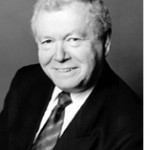By Rabbi Dow Marmur

JERUSALEM — Micha Goodman is one of the most interesting young scholars of Judaism in Israel today. His books on two seminal works of Medieval Jewish philosophy – Moses Maimonides’ Moreh Nevuchim and Yehuda Halevi’s Kuzari – have been best sellers in Israel, as has his third book on Deuteronomy, Moses’ Last Speech. As far as I know, until now only the Maimonides book has been translated into English; no doubt the others will follow.
Goodman’s latest work, Catch 67 that has just appeared here should be made available in other languages as soon as possible. It’s about Israel after the Six Day War. As the title suggests, it argues that there’s no definite solution to the Israeli-Palestinian conflict, but there may be remedies.
Israel’s primary concern is security. It views the territories conquered in 1967 as necessary for the safety of the some six million Jews who now live in the Jewish state, half-a-million of them in territories which came under Israeli control in the Six Day War. The fear of annihilation that existed before that war has been removed. It has enabled Israel to thrive in the last fifty years.
Israelis have good reason to fear that Iran, its sworn enemy, would gain access to Israel’s borders through a proxy Palestinian state and bring back the fear. Therefore, it can only contemplate a peace agreement that would allow Israel to patrol areas inside the Palestinian state.
For the Palestinians, on the other hand, the Israeli conquest of the territories they consider theirs – in 1948 no less than in 1967 – is experienced as humiliation. They would ideally like to see the end of the Jewish state. Withdrawal to the pre-67 borders and stopping expansion in the settlements in the West Bank and East Jerusalem can at best only be a painful temporary compromise (see below).
Much more needs be said about it, but even this brief and superficial sketch indicates why Goodman is right to see the situation being analogous to Joseph Heller’s celebrated novel Catch 22.
So a comprehensive peace isn’t on the cards. However, Palestinians, supported by other Arab states – some of whom have come much closer to Israel because Iran now threatens them, too – may be prepared to settle for a “hudna,” an indefinite armistice. This would bring tranquility and great economic opportunities to the Palestinians without forcing them to change their narrative.
But it would mean changing Israeli tactics, not only by refraining from settling more Israelis in the territories but also giving up Israeli rhetoric of the kind that demands Palestinian recognition of Israel as a Jewish state. In view of their narrative, Palestinians won’t do it, because, whatever historians may say and archaeologists prove, they won’t accept that the country was once Jewish, whether or not God gave it to the Israelites. They may, therefore, not agree to peace but may live with armistice.
As Israel is the stronger partner in this struggle – Palestinians’ strength, such as it is, is only manifest in their refusal to negotiate – it should take some confidence building measures. Goodman points to at least four, all of them doable without in any way compromising Israel’s security needs.
I haven’t done justice to this important book. I hope that it’ll soon appear in English and that you’ll read it. These reflections only seek to point to the prospect that though a definite solution may not be possible, a long-term accommodation can be reached. That’s the best news we can hope for.
*
Rabbi Marmur is spiritual leader emeritus of Holy Blossom Temple in Jerusalem. He may be contacted via dow.marmur@sdjewishworld.com